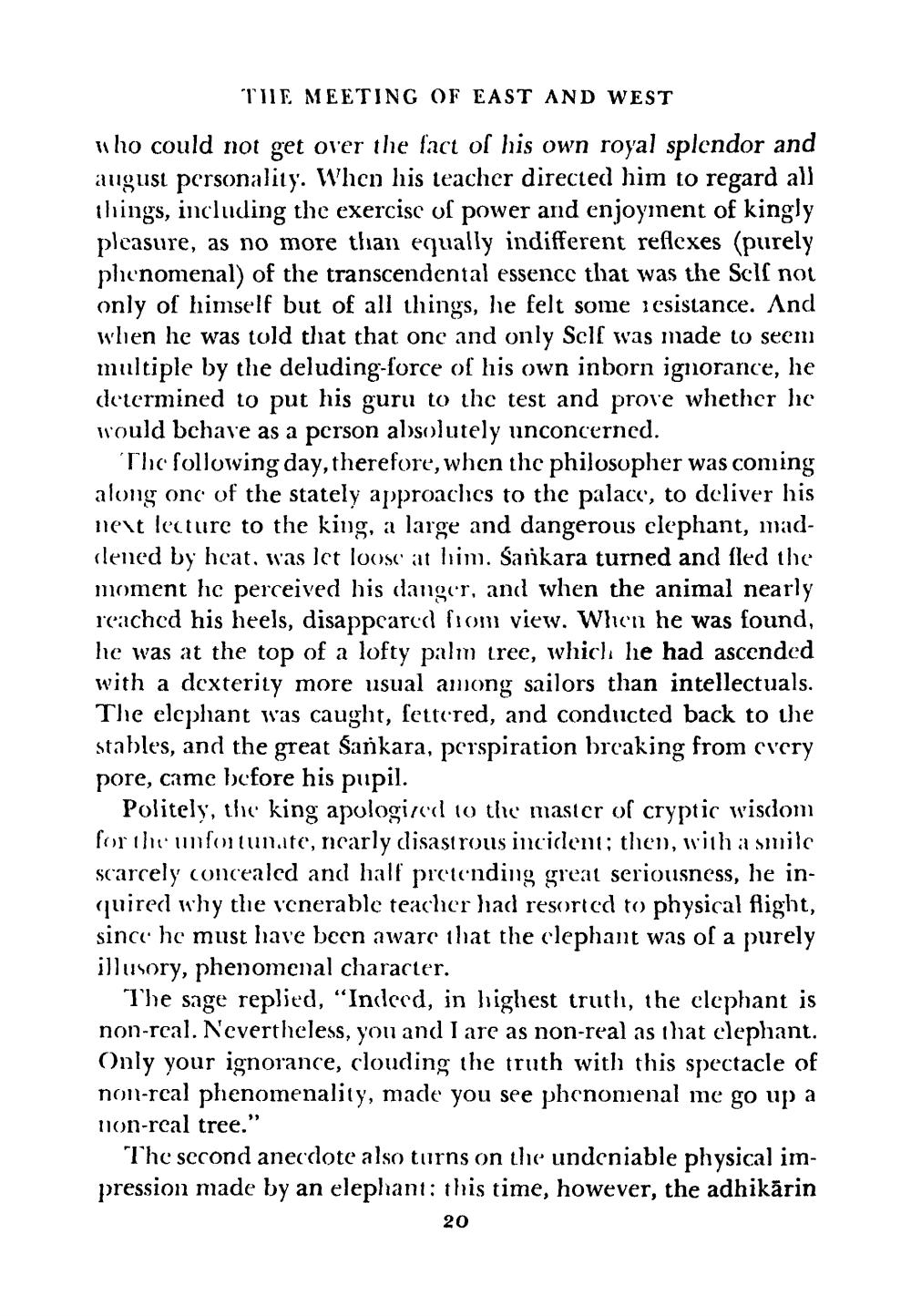________________
TUIE MEETING OF EAST AND WEST u ho could not get over the fact of his own royal splendor and august personality. When his teacher directed him to regard all things, including the exercise of power and enjoyinent of kingly pleasure, as no more than equally indifferent reflexes (purely phenomenal) of the transcendental essence that was the Self not only of himself but of all things, he felt some resistance. And whien he was told that that one and only Self was made to seem multiple by the deluding-force of his own inborn ignorance, he determined to put his guru to the test and prove whether he would bchave as a person absolutely unconcerned.
The following day, therefore, when the philosopher was coming along one of the stately approaches to the palace, to deliver his next lecture to the king, a large and dangerous elephant, madrlened by hcat, was let loose at him. Sankara turned and fled the moment hc perceived his danger, and when the animal nearly reached his heels, disappeared from view. When he was found, he was at the top of a lofty palm tree, which he had ascended with a dexterity more usual among sailors than intellectuals. The elephant was caught, fettered, and conducted back to the stables, and the great Sankara, perspiration breaking from every pore, came before his pupil.
Politely, the king apologized to the master of cryptic wisdom for the unfortunate, nearly disastrous incident; then, with a smile scarcely concealed and half pretending great seriousness, he inquired why the venerable teacher had resorted to physical flight, since he must have been aware that the clephant was of a purely illusory, phenomenal character.
The sage replied, “Indeed, in highest truth, the clephant is non-real. Nevertheless, you and I are as non-real as that elephant. Only your ignorance, clouding the truth with this spectacle of non-rcal phenomenality, made you see phenomenal me go up a non-rcal tree."
The second anecdote also turns on the undeniable physical impression made by an elephant: this time, however, the adhikärin
20




